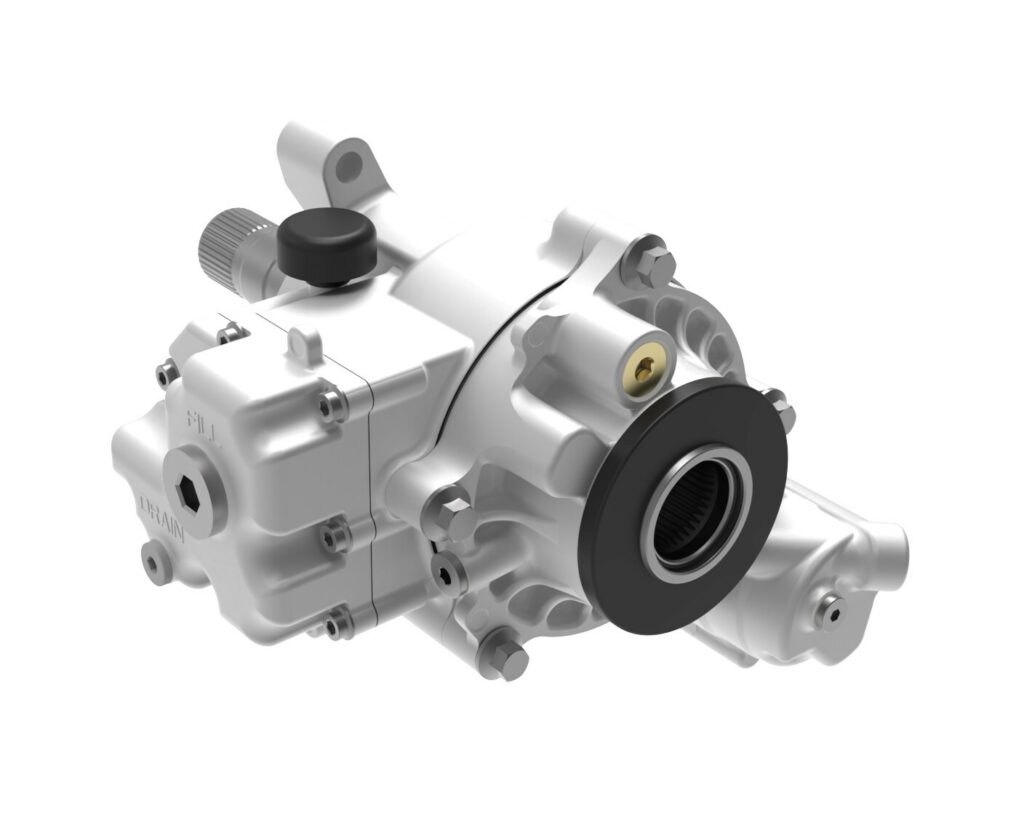
The eXD is a part of BorgWarner’s electric torque management system (eTMS) portfolio. The scalable and customizable technology is said to give customers the freedom to program different performance characteristics and behaviors for their respective platforms. (Image: BorgWarner/PRNewswire)
The company’s eXD technology is said to improve vehicle traction, handling, and stability.
AUBURN HILLS, Mich.—BorgWarner recently secured contracts to supply its electric cross differential (eXD) to three major OEMs, including GAC Motor, a global East Asian OEM, and a global OEM based in Europe, BorgWarner said in a release.
The OEMs will incorporate BorgWarner’s eXD technology on rear- and front-wheel-drive battery electric vehicle (BEV) applications, ranging from sports cars to premium sedans and hatchbacks. Production for GAC Motor is currently underway, and production for the other OEMs will begin in 2026, according to the release.
The eXD is a part of BorgWarner’s electric torque management system (eTMS) portfolio, which offers a range of products that are said to intelligently control wheel torque to increase stability, provide superior dynamic performance, and improve traction during launch and acceleration.
“BorgWarner’s eTMS portfolio leverages an array of BorgWarner’s longstanding and proven competencies within the industry, spanning software, controls, systems integration, and beyond,” said Isabelle McKenzie, president and general manager, BorgWarner Drivetrain and Morse Systems, in the release. “The recent business awards for our eXD technology underscore the versatility and sophistication of the system and highlight our ability to meet the industry’s need for solutions that increase safety and optimize energy consumption.”
BorgWarner said in the release that its eXD technology is applicable to all architectures, including front and rear drive units for electric, hybrid, and internal combustion engine (ICE) vehicles. It is reported to offer a wide range of selectable modes, depending on vehicle performance needs. The technology, described as “completely scalable and customizable,” is said to give customers the freedom to program different performance characteristics and behaviors for their respective platforms.
“Based on strong BorgWarner legacy know-how and a platform development approach, the eXD employs carry-over elements for both software and hardware,” the company said in the release.
The eXD reportedly enables efficient and intelligent communication with the vehicle, operating on-demand and featuring an on-board integrated controller that supports requirements ranging from cyber security to functional safety and beyond. By adaptively controlling wheel slip, the eXD is said to decrease brake system use and, therefore, the emission of non-exhaust particulate matter into the environment.
